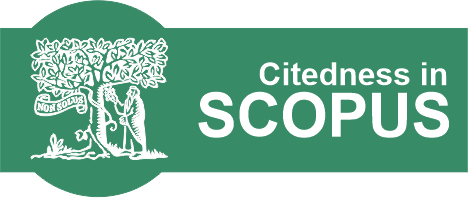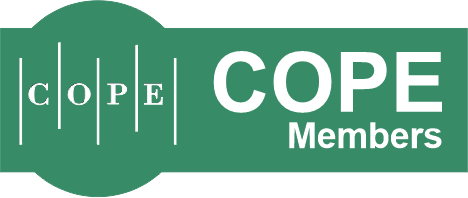Managing Toxic Behaviours and Institutional Culture in Education: Evidence-Based Strategies for Academic Professionals
Keywords:
Toxic Behaviour, Academic Institutions, Workplace Culture, Faculty Well- being, Organizational ChangeAbstract
Toxic behaviour and dysfunctional institutional culture in educational institutions have emerged as significant challenges affecting faculty morale, productivity, and overall academic excellence. This study explores the nature, impact, and management of toxic workplace dynamics in academia through a literature-based approach. Drawing from scholarly sources published over the last decade, it identifies common toxic behaviours such as micromanagement, favouritism, bullying, and poor communication and analyses their psychological and professional consequences on faculty, staff, and students.
The review also highlights current strategies employed by institutions, including conflict resolution training, emotional intelligence development, mentorship programs, and policy reforms. Special reference is made to experiences in Tamil Nadu to contextualize these issues in the Indian higher education setting. The findings underscore the urgent need for leadership commitment, transparency, and a shift in organizational culture to foster healthy academic environments. The study concludes with practical recommendations to reduce toxicity and promote collegiality in educational institutions
References
Anitha, R., & Prabhakaran, M. (2022). Workplace well-being and faculty retention in higher education institutions. Journal of Human Resource and Sustainability Development, 10(3), 45–54. https://doi.org/10.4236/jhrss.2022.103004?
Brown, K., & Thompson, A. (2022). Mentorship as a tool for academic resilience: Evidence from higher education. International Journal of Educational Leadership and Management, 10(1), 15–28. https://doi.org/10.17583/ijelm.2022.6541?
Fisher, C. D., & Ashkanasy, N. M. (2000). The emerging role of emotions in work life: An introduction. Journal of Organizational Behavior, 21(2), 123–129. https://doi.org/10.1002/(SICI)1099-1379(200003)21:2<123::AID-JOB34>3.0.CO;2-8
Goleman, D. (2017). Emotional Intelligence: Why It Can Matter More Than IQ (10th Anniversary ed.). Bantam Books.
Hollis, L. P. (2015). Bully in the Ivory Tower: How Aggression and Incivility Erode American Higher Education. Patricia Berkly LLC.
Kluska, C. S., Winslow, B., & Wiggins, J. (2021). Toxic leadership in academic environments: A threat to organizational success. Journal of Higher Education Policy and Management, 43(5), 495–508. https://doi.org/10.1080/1360080X.2021.1884511?
LaVan, H., & Martin, W. M. (2008). Bullying in the U.S. workplace: Normative and process-oriented ethical approaches. Journal of Business Ethics, 83, 147–165. https://doi.org/10.1007/s10551-007-9608-9?
Ngah, R., Wahyukaton, W., Salleh, A., & Sarmidy, R. K. (2016). Comparative study of emotional intelligence and entrepreneurial orientation between Malaysian and
Indonesian university students. Procedia Economics and Finance, 37, 100–107. https://doi.org/10.1016/S2212-5671(16)30099-5?
Pambayun, S. R., Suryadi, D., & Herman, T. (2021). Industrial work culture education in Indonesian vocational high schools: A case study. Issues in Educational Research, 33(1), 321–337. https://www.iier.org.au/iier33/pambayun.pdf?
Rajalakshmi, K. (2020). Challenges in Indian academic institutions: A qualitative study on administrative practices and faculty attrition. Indian Journal of Educational Research, 9(1), 33–42.
Silalahi, A. T., Wulandari, R., Akbar, M. F. R., & Kristopo, H. (2022). Exploring emotional and cultural intelligence of undergraduate international students at an Indonesian private university. Journal of International Conference Proceedings, 5(5), 12–21. https://doi.org/10.32535/jicp.v5i5.1325?
Twale, D. J., & De Luca, B. M. (2008). Faculty Incivility: The Rise of the Academic Bully Culture and What to Do About It. Jossey-Bass.
Valluvar, T. (2000). Thirukkural (Rev. ed., G. U. Pope, Trans.). Tamil University Press. (Original work published ca. 1st century BCE)
Yedidia, T. (2017). The role of leadership in mitigating organizational toxicity in academia. Journal of Leadership and Organizational Studies, 24(4), 512–525. https://doi.org/10.1177/1548051817727703?
Zheng, W., Qu, Q., & Yang, B. (2009). The impact of psychological empowerment on job performance: The mediating role of job satisfaction. Social Behavior and Personality: An International Journal, 37(3), 305–312. https://doi.org/10.2224/sbp.2009.37.3.305?
Hermana, A., & Tjakraatmadja, J. H. (2024). The ripple effects of toxic supervision on academic performance in doctoral programs: Investigating mediation and moderation mechanisms. International Journal of Doctoral Studies, 20, 45–62. https://ijds.org/Volume20/IJDSv20Art003Hermana11017.pdf?
Sari, D. P., & Prasetyo, A. R. (2022). Constructing the concept of student well-being within Indonesian Islamic higher education: Insights from teachers and students. Religions, 14(9), 1140.
Swan, B. R. (2021). Emotional intelligence in higher education: The key to successful collaboration. Journal of Educational Change, 22(3), 345–362.
Tight, M. (2023). Bullying in higher education: An endemic problem? Journal of Higher Education Policy and Management, 45(2), 123–137.
Wulandari, R., & Akbar, M. F. R. (2022). Psychometric properties of emotional intelligence scale: The application for university students in Indonesia. Journal of Psychological Assessment, 40(2), 150–165.
Downloads
Published
How to Cite
Issue
Section
License
Copyright (c) 2025 Dr.M. Nirmala, Dr.Sheik Mohamed S.H, Prof.Theerka.N, Sam Hermansyah

This work is licensed under a Creative Commons Attribution-ShareAlike 4.0 International License.



































